
The Best Baby Formulas in Canada
After pregnancy, each mom discovers the breastfeeding challenge. For some of us, it’s an easy and fluid experience, but a hard one for some others. In many cases (and we should see more information about it) the body does not produce enough milk to feed the baby, or breastfeeding is not an option for some reason. To support parents in all these cases, the baby formula is the best option to safely feed the baby. And there are on the market many options based on age and ingredients, from newborns to toddlers.
Besides components, in this guide, we consider what is also essential to consider before investing in the best baby formula for your infant or toddler. The nutritional needs of babies vary based on each stage of growth, so finding the right formula helps to ensure a healthy development for your kid.
Our Top Picks
What to look for in a baby formula
Allergies: Is your baby allergic? That is the first point to consider before buying a formula You need to first know if the baby can drink milk or has any other allergy, such as egg, soy, peanut, etc. There are many high-quality and affordable options on the market and many symptoms to be evaluated before getting a diagnosis (talk to your family doctor if your baby has these symptoms). Sometimes, instead of having an allergy, your baby is lactose sensitive.
Reflux: If your baby has severe reflux, you can look for specific options (schedule an appointment with the family doctor), which help with the treatment.
Baby’s age: Each formula has different minerals/vitamins and was made to better fit their stage of growth. Therefore, it’s fundamental to respect the age given by the brand.
Nutrients: Iron, Omega (DHA), potassium, proteins, vitamins, carbohydrates, and many other nutrients are essential to improve the baby’s health, and in each stage of their life, these nutrients (or their amount) can change to better adapt to what they need at that stage of growth.
Package: You can find on the market baby formulas ready to drink or powered ones, that need to be solved with water.
Size: Powered from 400 to 900g and liquid from 250 to 400ml on average. From big to smaller packages, it is possible to find different sizes of baby formulas. The smaller the packaging, the less it will last. Especially depending on the baby’s age – from newborn to 6 months they only are fed milk.
The best hypoallergenic baby formulas 0+
Neocate Infant DHA/ARA
- Age 0+
- 400g
Ideal for severe and multiple allergies (especially milk protein and soy), this formula has nucleotides & DHA/ARA, and is free of dairy, soy oil, artificial colours, flavours or sweeteners besides having vitamins and minerals ideal for newborns to 12-month-olds babies. According to the fabricant, Neocate should only be used under medical supervision.
As a powder formula, the milk powder needs to be mixed with water according to the brand’s proportion indication. Specifically for severe allergies the fear of having a product out of stock is always there, the website allows consumers to buy cases with 4 cans of 440g each – it is always better to keep one or more extra formulas at home. Especially when babies are so young, up to 6 months, and consume only milk.
Pros
- Helps with reflux
- A good option for severe allergies
- Can help babies with multiple allergies
- DHA
Cons
- Pricey
Similac Alimentum Hypoallergenic Baby
- Age: 0+
- 237ml in each can (pack of 4)
My youngest daughter, up to 17 months old, was milk and egg-allergic, and after the first formula I gave her had a recall, I needed to look for another equally safe option – the Alimentum. It was a smooth change, and my daughter liked the taste.
Easy to use, since the milk is ready to be consumed, you just need to open the can, put the right amount in the baby bottle, warm up a bit and that’s it. Another point to highlight is the nutritional label. The formula has vitamins, minerals, and many other nutrients (vitamins A, E, D), magnesium, potassium, proteins, folic acid, zinc, and many others important to healthy growth.
It is important to highlight the price and storage space. As each packaging comes with 4 small cans (237ml), you need to buy a lot of them depending on how much milk your baby consumes every day. For the same reason the formula can be pricey, as the package costs around 8 dollars, and it can last one or a few days.
Pros
- Practical
- Ready to drink
- Healthy
Cons
- Pricey
- Only 4 small cans in each package
- Soy free baby formula
Nutramigen A+ Hypoallergenic Infant Formula
- Age: 0+
- 454g
This powder baby formula contains extensively hydrolyzed milk protein, and it can be a pain free option for soy and milk allergic babies. Healthy to stimulate babies since they are newborn, the milk contains DHA, iron, calcium, potassium, vitamins, and many other nutrients.
Easy to store, the container comes with 454g and need to be dissolved with water to be consumed. My oldest daughter had a severe milk allergic and my youngest one, as I said before, was milk and egg allergic. Both of them consumed this baby formula and didn’t have any stomach pain after the first use. However, as each child has different allergy levels, the personal experience can vary.
Pros
- Affordable
- Contain DHA
- Easy to use
- Extensively hydrolyzed protein
Cons
- The formula had a recall in 2024 after a bacterium (Cronobacter sakazaki) was found.
- Not easy to find after the recall
The best lactose-free baby formulas
Similac Lactose Sensitive Baby Formula 0+
- Age: 0+
- 385ml in each can (pack of 12)
It’s super normal when the baby has colic up to 3 months or so, especially considering that their digestive system is getting mature while aging. However, if the pain is beyond normal is always better to check if is everything ok with the family doctor and pediatric allergist as this can be caused by milk protein (or any other allergy) or lactose sensitivity.
This Similac Lactose Sensitive is considered for some parents the best lactose-free baby formula to stop or right away decrease their baby’s stomachache. Ready to drink, is just needed to shake well the container before serving it in a baby bottle, cup (or any other preferred way).
Healthy, the brand highlights that the formula is made from cows not treated with artificial growth hormones. The formula also comes with vitamins K, C, D, E A, folic acid, and minerals.
Pros
- Lactose-free baby formula
- Convenient
- Long expiration date
- Easy to digest
- Non-gmo
Cons
- Some babies still have colic after consuming this formula
The best plant-based formula
Enfamil Prosobee Plant based Baby Formula
- Age 0+
- 593g
This soy-based formula doesn’t have milk as an ingredient and is a vegan choice for parents or guardians that are looking for some high-quality plant-based and non-dairy alternatives.
The brand affirms that this milk minimizes fussiness and gas sometimes caused by milk-based formulas, being easier for digestion and to decrease stomach-aches. For Muslim babies, the formula is also Halal. Regarding the ingredients, so important for parents to make the decision, some of them are calcium, potassium, folic acid, iodine, and magnesium, besides vitamins A, D, E , K.
Another point to highlight is that the Enfamil Plant-based formula doesn’t have sugar, artificial colours, or artificial flavour, being healthier and more natural for infants.
Once the baby is used and well digesting the formula, it’s possible to find packs with 4 cans to save. While one can of 500g is almost $40, if you buy a pack of 4 cans you pay $144 and store extras at home. Another point to highlight is the powder quantity. This Enfamil Prosobee comes with 593g. Almost 200g more than the average on the market.
Pros
- Plant-based
- Halal
- Each pack has 593g
Cons
- The taste can be challenging for some babies
The best milk-based formulas
Enfamil Neuropro baby formula
- Age: 0+
- 583g
Well recommended and with almost 5 starts on Amazon.ca, the Enfamil Neuropro is tasty for the main babies, has expert-recommended DHA, known to support your baby’s growing brain – to reach their milestones, and includes easy-to-digest proteins, vitamins & minerals.
We know that the breastmilk is the most complete food, and according to the brand this formula is inspired by its nourishing qualities, offering complete nutrition and easy-to-digest proteins during the infant’s first 12 months of life. Still, according to Enfamil, the company is the #1 trusted formula brand for pediatricians, and a reference in the segment for brain-building and immune support.
Sometimes is not that easy to find a formula that the baby likes the taste, and this Enfamil Neuropro, in the main parent’s opinion, has a positive acceptance.
Pros
- Good acceptance
- Brain Development focus
- Trusted for pediatricians
- Tasty
Cons
- Some babies can be gassy
Aptamil Stage 1
- Age 0+
- 800g
Although milk-based, this Aptamil First is designed to be gentle on a baby’s tummy. Inspired by more than 50 years of research, the formulas have features such as HMO 3’GL, and dual prebiotics GOS/FOS that feed the good bacteria in the gut and promote softer and regular stools that are closer to that of breastfed infants.
Besides potassium, iron, vitamins, and other ingredients, the formula has DHA to help support brain and eye development, being another option inspired by the breastfeeding benefits especially when we talk about babies’ immunity.
Another point to be highlighted is that the product doesn’t have palm oil, so common in baby formulas and industrialized food in general. The acceptance is also positive in general. Many parents shared their positive experiences with mixing the formula with their breast milk.
Pros
- No palm oil
- DHA
- Prebiotics
- Immunity
Cons
- Sensitive babies can have diarrhea
The best formulas for +1
Nido +1
- Age +1
- 850g
While babies grow, their nutritional necessities also change. This halal milk, besides being a viable option for Muslim families, is formulated to support toddlers’ healthy growth and development. Each serving contains essential vitamins and minerals like calcium and vitamin D to help build strong bones and teeth. Magnesium, zinc, iron, and potassium are also there.
Affordable, one can come with more than 800g and cost less than $30. Considering that in this phase the child drinks less milk because it is eating solids, the formula will last for one month or so – depending on the kid’s consume.
Pros
- Halal
- Tasty
- Enriched with vitamins and minerals
- 800g
- Affordable
Cons
- Has sugar
Enfagrow A+®
- Age 1 to 5 years
- 907g
Recommended for toddlers from 1 to 5 years, the Enfagrow has 26 nutrients and, as in this age the child already eats solid food, the formula can be served during a meal or as a snack before napping, for example – whenever the parent or guardian thinks is a good time.
Easy to prepare, this Enfagrow A+ needs to be mixed with water before serving. Depending on the child’s taste and routine can be challenging to feed them offering their daily needs in terms of nutrients, such as the right amount of DHA (improves brain development). Thus, according to the brand, they focused on their nutritional quality, which involves minerals, proteins, and vitamins.
Pros
- 26 nutrients
- DHA
- More than 900g in each can
Cons
- Sugar
- Soy oil
- Sunflower oil
Our methodology
For this buying guide, we brought our personal experience and spent over ten hours analyzing baby formulas considering hypoallergenic, regular, and formulas for toddlers up to 5 years old. To help us with our research, we read parents’ or guardians’ reviews and their opinions regarding each product. The main point we focused was on the nutritional part.
Frequently asked questions about baby formula
Why is there a baby formula shortage?
In 2022, there was a large baby formula recall, which caused a baby formula shortage in the long term. In 2023, a recall also happened with the Nutramigen baby formula for allergic infants, which caused a stressful scenario for parents who needed to find a hypoallergenic option for their babies. These recalls affected the formulas and the market, but according to specialists, it’s impossible to predict when consumers will see improvements. The shortage is also associated with post-pandemic supply issues.
Can I use distilled water for baby formula?
Yes, for newborns especially. Considering that this water doesn’t have any impurities, it is the safer option for your tiny babies. However, as this water doesn’t have minerals in it, it’s not the best one in the long term.
What did we do before baby formula?
It will depend on the formula. For prepared-to-drink ones, you just need to mix and warm up according to the baby/toddler preferences. For powered ones, you must add water and mix both until reaching a homogeneous liquid baby formula. It is always ideal to check the brand’s recommendations, but the average formulas can be stored in the fridge for up to 12 hours and, at the natural temperature, for 2 hours only.
What is the closest formula to breast milk?
For some parents and pediatricians, the Enfamil Neuropro baby formula is a high-quality option for babies that don’t have allergies. However, is essential to affirm that breastmilk is the most enriched food, and nothing can be compared to this natural milk source.
Is formula bad for babies?
Each formula can be perfect for some babies and bad for others. Everything will depend on how their organism will accept its ingredients. However, there are options more or less enriched. That is the reason why is essential to check the “ingredients” label before buying a baby formula. Regardless of the baby formula brand you choose, it’s essential to consult with a doctor and understand how each formula may affect your baby’s health before any buying decisions.
Read more

Best Car Seats and Booster Seats in Canada
Keep your little ones save on the go with these car seats, designed to grow with them.

The Best Baby Monitors in Canada
We know the main concern of every parent is their little one’s safety.

Best Strollers for Babies and Toddlers in Canada
What to look for in a stroller? There are several features to consider.

The Best Diaper Bags on the Market
Pack everything you need for your little one in any one of these stylish bags. Suitable for fashionistas or practicalists alike.
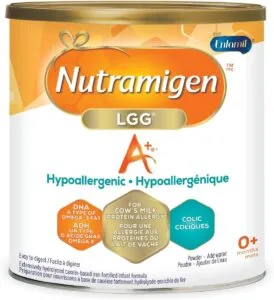
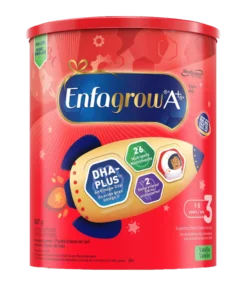
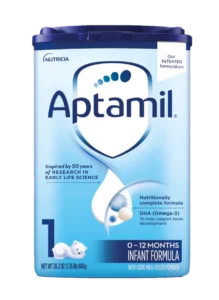
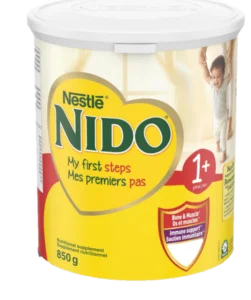
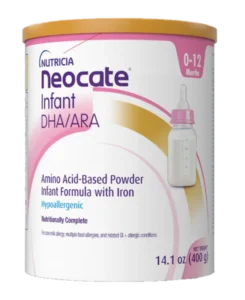
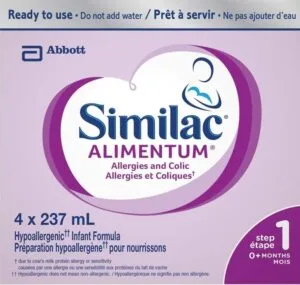
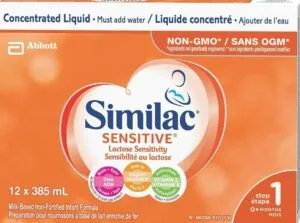
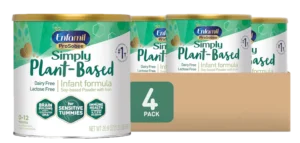
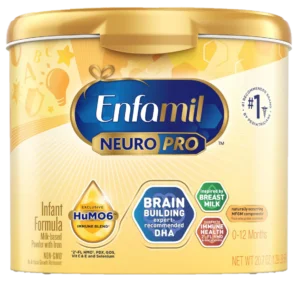
XhJqFkqDmnL
12Swc4wYV7h